Fabrizio Ulivieri's Blog, page 15
April 7, 2025
Aistė
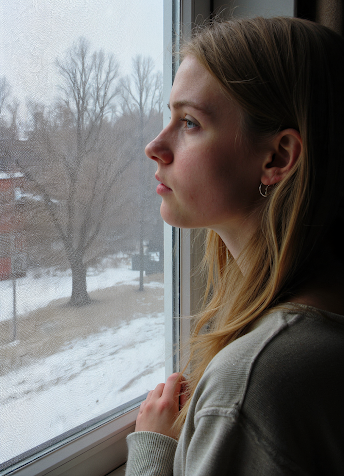
When the wind blows, icy and cold, hitting and wounding the face, Lithuania declares herself.
No snow, no rain, no grey day speaks as the wind speaks and says, "That’s me. Lithuania." This is the message the wind carries along.
As the wind blows and the trees bend without a word, so people don’t complain; they stay still and apparently do not suffer. Like the trees, they bend and endure, without pride, without rebellion. They keep quiet and watch nowhere.
In Lithuania, people and nature share the same mood. People resist and suffer without a lament, without their countenance betraying their dolor.
Aistė was late as always. It was in her nature to be late. She was born late, one week later than expected. She woke up late; she fell asleep late. She was always late to school ...
Everything she did was following her existential condition, her intimacy: to be on time, she would have to suffer; she avoided any form of suffering. In a country where suffering was the normal state.
When in the morning one looks out through the window and one sees layers of grey and snow or rain covering every hope of happiness, how can one be enticed to leave their bed, their home?
A graceless lady is Lithuania.
Published on April 07, 2025 12:57
April 6, 2025
"Memento" di Ugo Iginio Tarchetti
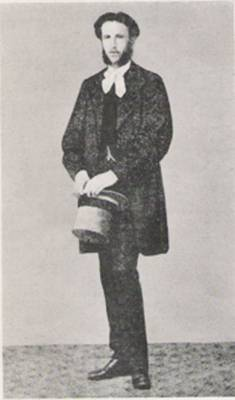
Questa poesia è di Ugo Iginio Tarchetti. Non l'ho scritta io, ma avrei voluto.
Quando bacio il tuo labbro profumato,
Cara fanciulla, non posso obliare
Che un bianco teschio vi è sotto celato
Quando a me stringo il tuo corpo vezzoso
Obliar non poss’io, cara fanciulla,
Che vi è sotto uno scheletro nascosto.
E nell’orrenda visïone assorto.
Dovunque o tocchi, o baci, o la man posi,
Sento sporger le fredde ossa di un morto
.
Published on April 06, 2025 10:46
The Little Book of the Dead - Giovanni
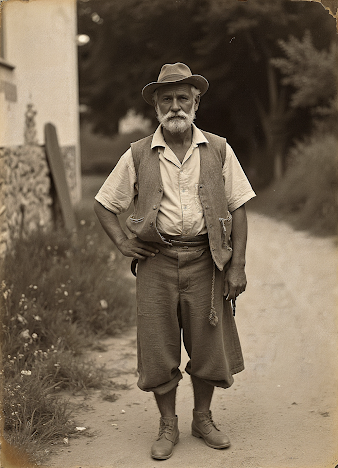
Deep, the well of the past. Unfathomable when one discusses and questions the past of man. An enigma, and this enigma we are. We enclose our existence within. Body against spirit, a conflict by nature. This we are — the alpha and the omega of all questions: "Why do we exist?"
And the deeper one digs, the more one is consumed and suffers. Self-knowledge is pain; pain unveils that death is what one must prepare for.
Everything inside speaks to us of those who died before, they too, bottomless abysses.
Descend you must into them. Traverse them. One after the other. Until the last and final abime.
I ask you, Giovanni, who have you been?
Word speaks you were a life lover. Word speaks you were un donnaiolo. Women you loved, perfume, and dressing up. You loved reading books, and you loved politics. Volterra, you loved, where you founded a socialist circle.
You were a peasant, an uncommonly well-educated peasant. This I know.
Word makes world, and I grasp those words that spoke of your world to me.
The tales of your deeds, the tales of my parents and grandparents, I must rely on. Can those words consign what you have been? Do those words shine your true self?
What was the abime which built you up to be what you were, to me?
I know how you died. One Sunday after lunch, you said, "I am tired, my dears, I need to sleep for a while".
You went to your room and you slept forever. You never woke up. That was your farewell to the world that accompanied you.
Where are you now, Giovanni?
Where are you lingering on? Where? Are you still alive? What is the place you abide?
Where is your soul speaking to me from?
Published on April 06, 2025 00:32
April 5, 2025
Night and fear

Childhood living holds my stay
Things I wanted like sand slidden away.
Graceless lady, you know who I am
You know me inside 'cause
You watch me suffer day by day.
A dull aching pain you've decided
To show me again and treat me unkind.
I've dreamed of you many times.
You, sins and lies, you freedom
Your abime, cruel on me, you lay.
Faith broken and tears cried
What will I leave after I die?
Published on April 05, 2025 09:05
April 4, 2025
L' attimo importante
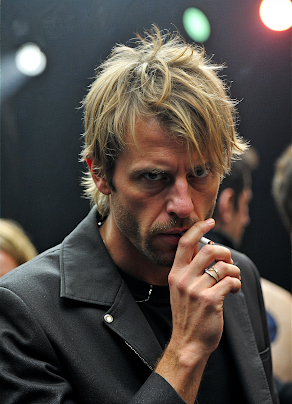
Graceless lady
You know how I am
L'attimo importante esiste nell'uomo?
Quell'attimo che sembra una vita fissare?
Tu che credi - che figure siamo devi pensare.
Published on April 04, 2025 23:07
La vita di un altro

Mi guarda mi segue mi spia
Va su e giù - per i corridoi
Passo lento meccanico stanco
Una noia di vivere lo manda?
Mi saluta e i suoi occhi
S' accendono al "Labadiena!" che incontro.
Sempre la stessa uniforme porta
Ma che da me i suoi sguardi cerca?Non ha il piglio di uno banaleChe guarda al mondo in modo normale.Ma un tocco infelice, si tiene lui dentro.
Published on April 04, 2025 22:24
Vivere in esilio

Manca il senso comune - quel senso
Che trovi che vivi dentro l'eccesso
Che te riconosce in sé immenso
Sempre si dà nell'ora e adessoLo vedi lo senti in una forma.Ti guida e sembra esser il nesso
Dei giorni delle ore che è normaAssume ruoli e nomi e cambiaNe cambia il tempo e si trasforma.
Ora vedo il suo nome - sabbiaTra le mani in esilio io tengoLontana scivola e piango rabbia.
Published on April 04, 2025 21:30
April 1, 2025
Io ti amo
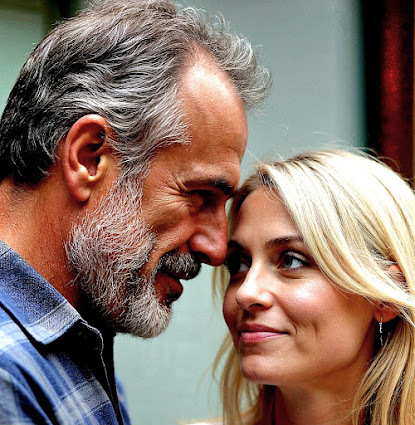
Io ti amo per la tua umanità
Per la tua profonda santità.
La santità umana che vive di te.
Non per le tue mani - non per i tuoi occhi
Né bocca - non per i tuoi morbidi seni.
Per la luce però che da te penetra a me
Che il suono della tua voce
Vibra nell'aria e dice io sono!
Io esisto, Io vivo, Io sono io!
Published on April 01, 2025 21:09
March 30, 2025
The Little Book of the Dead - Nonna Amelia
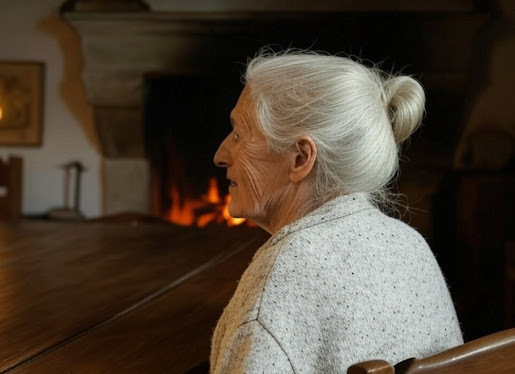
Amelia is said to derive from the Old Germanic Amal, which means "work," "industriousness," or "effort."
Nonna Amelia was tireless, indeed. She never stopped working—although her body was delicate and frail—not for a moment; but I prefer to think of miele (honey), whose Latin root (mel) echoes in the name A-mel-ia.
Nonna Amelia had white, smooth hair, gathered in a bun that fell softly on her neck. She had occhi dolci (gentle eyes), un sorriso dolce (a gentle smile), and her countenance was dolce. She was what in Italian we call a dolce nonnina. Maybe she was like I remember her, or maybe I metamorphosed her; I remember her in a way that altered her real nature.
Death certainly is metamorphosis, the biggest metamorphosis of human nature, and when you recall the dead, you give a different nature to living beings that once were alive in this saeculum.
They are transubstantiated in memory.
She loved me. She used to caress my blond curls. I remember.
Her soft, smooth, white hair reassured me. It was the only light in that dark, big kitchen where she lived.
I remember a big table in the center and a huge fireplace where a cauldron was permanently boiling.
Nothing else I can recall. The distance forbids it.
No, she was not a witch; she was a fairy.
My blue fairy.
And me, her little Pinocchio.
Published on March 30, 2025 13:31
March 28, 2025
I bambini son grandi filosofi
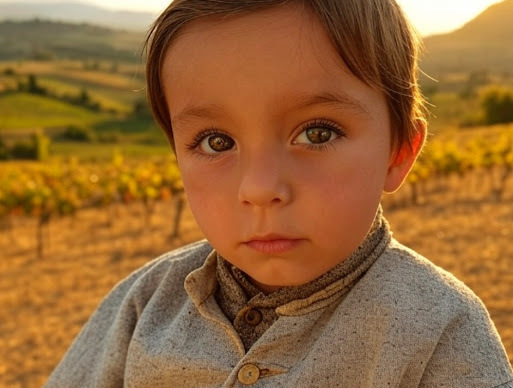
Oh mio Dio, ch' è rimasto di me?
L'ultimo me di tutti i me che ho dato?
Son io ciò che vedo? O un universale
Che contiene l'infinita-finita varietà
Di una vita che nella vita ha cercato
Del morir il senso e nel morir la vita?
Come un bambino ha domandato:
Perché sono nato? Perché morire?
I bambini son grandi filosofi
I bambini son essenziali
I bambini hanno meno strutture
E compagna vicina, la luce che genera.
Published on March 28, 2025 03:30



